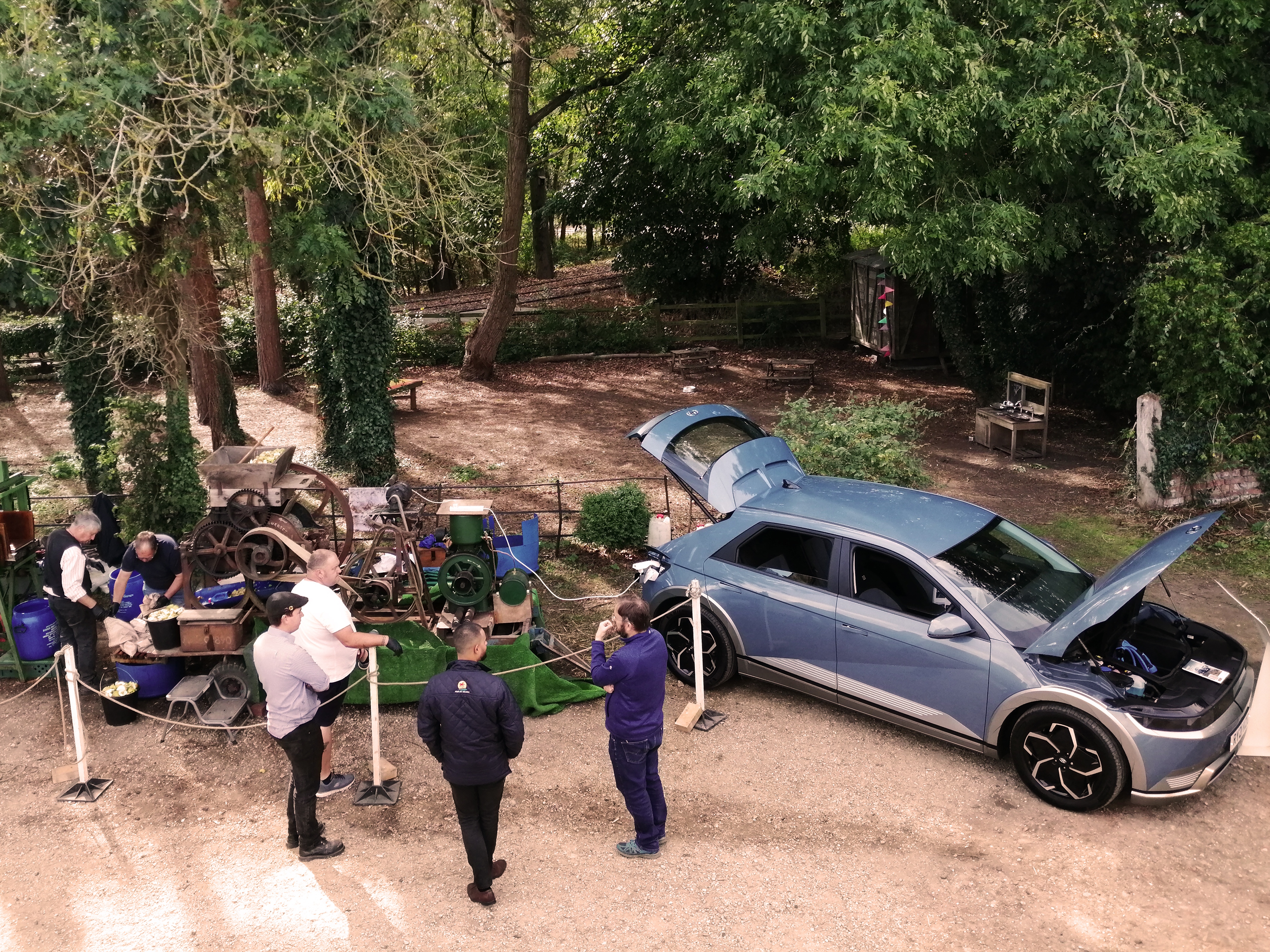Pebley provides the 'juice' for apple pressing event
Victorian technology was given a 21st century boost at last weekend (September 24-25) as an electric car loaned by Swindon motor dealer Pebley Beach was used to power a fruit-pressing apple scratter.
Since 2017 an 1890 apple press has been brought to the Richard Jefferies Museum in Swindon each September to squeeze fruit grown in the grounds of the farm where the celebrated nature writer grew up.
The scratter, owned by Wanborough-based Hatch Heritage Engineering, would originally have been powered by steam and in recent years has been powered by a petrol engine.
But keen to explore sustainable alternatives in all aspects of the museum's operations, the museum engaged the assistance of Pebley Beach to power the scratter using the battery of the multi-award-winning Hyundai Ioniq 5.
In all, 320 litres of apple juice was pressed over the weekend. The juice will be allowed to ferment and turned into cider.
Mike Pringle, director of the Richard Jefferies Museum, said: "The scratter is exactly the type of machine that would have been used to press fruit in Richard Jefferies' day.
"While we are keen to celebrate Jefferies' Victorian heritage, we want to find sustainable ways of running the museum. We also tried running the scratter using a coal alternative made of olive stones."
Pebley's customer services manager Harry Threlfall said: "The Ioniq 5 is basically a battery on wheels, and its vehicle-to-load power outlet means anything with a three-pin plug can be run using the car's battery.
"We used about five per cent of the Ioniq's battery capacity to power the scratter, so it was very effective.
"Pebley Beach has been at the forefront of helping Swindon motorists make the transition from fossil fuels to renewables, and we were delighted to be able to help the museum."
Richard Jefferies was born at Coate Farm in 1848 and wrote the novel Bevis: the Story of a Boy – said to have inspired Mark Twain's Huckleberry Finn – about his fantasised childhood.
Jefferies wrote about nature and the countryside, and is believed to have coined the phrase 'wildlife'. A hugely popular writer in his day, he died in Sussex in 1887, aged 38, of tuberculosis.
The Richard Jefferies Museum is owned by Swindon Borough Council and run by the Richard Jefferies Museum Trust. Easily missed on the busy Marlborough Rd, it can be found next door to the Sun Inn. Further information and opening hours can be found at www.richardjefferies.org






